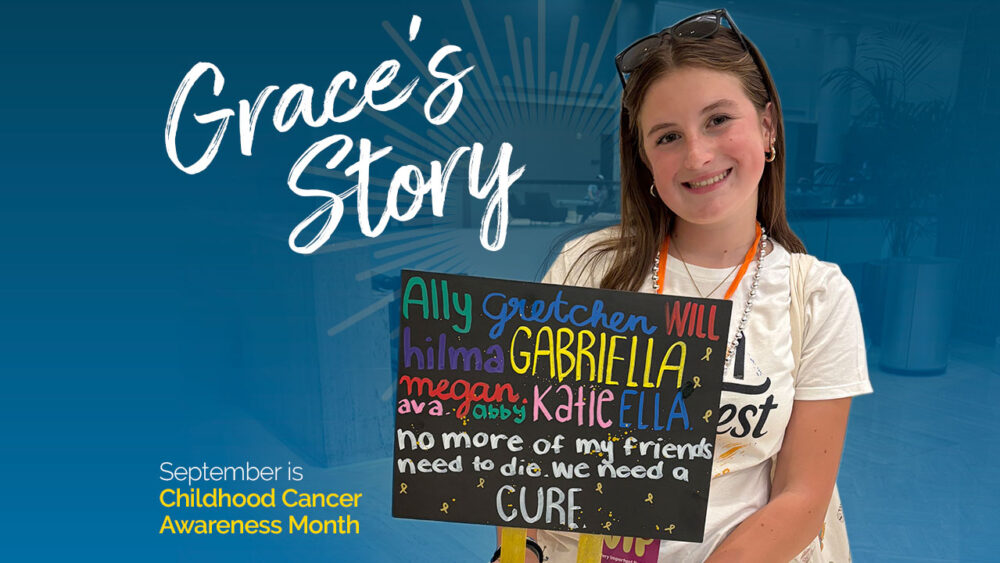When someone you know is diagnosed with cancer—or anything serious—it’s natural to want to help. You might donate, volunteer, or just feel a strong urge to do something. That’s especially true when it comes to childhood cancer, which is a cruel and heartbreaking experience for so many families.
If you’re reading this, maybe you’re wondering: How can I get my voice heard? How can I make a difference—especially after going through something like this myself?
I’ve been there. And I want to help you take that first step.
When I was 9 years old, I was diagnosed with a rare brain tumor. I went from being a typical kid, playing sports, doing school projects, hanging out with friends, thinking about my favorite camp I was going to go to in the summer, to suddenly navigating MRIs, various scans, lots and lots of bloodwork and needles as well as long days in treatment. I went through both chemotherapy and proton therapy. It was scary, but with the care and strength of my family, my friends, my pets, my care team, and my community, I made it through.
After I finished treatment, I felt something inside me shift. I didn’t just want to survive—I wanted to help. I wanted to make sure that other kids going through cancer felt seen, supported, and surrounded by hope. That’s where my voice started.
Today, I lead the WITH Grace Initiative, which raises awareness of childhood cancer and advocates for kids like me going through cancer treatment. This past week I joined with thousands of advocates and organizations in Washington, D.C. at CureFest, all united in our goal to make childhood cancer a national priority. Here’s what you can do to help make that happen.
Start With What You Love
The best way to start is simple: find something you enjoy doing. For me, that’s painting. Maybe for you, it’s building, crafting, writing, or playing music. Whatever it is, that thing you love—that’s your base.
Once you’ve found your base, you can start thinking about how to connect it to something bigger. For example, I use my painting as a way to raise awareness. You can:
Reach out to an organization that supports your cause and see how your talents can help.
Create a poster, flyer, or digital post about the cause you care about, and share it in a local store, school, or online.
The point is: you don’t have to do something huge to make an impact. You just have to start. And when you use your voice through something you enjoy, you’ll not only help others, you’ll help yourself heal too.
Let’s Talk About Stress
One thing people don’t talk about enough is how stressful life can be after cancer treatment. In my experience, I actually felt more stress after treatment than during it.
Why? Because once treatment ends, you’re left to process everything. You begin learning about long-term effects, health risks, and all the “after” stuff that nobody really prepares you for. (And the doctors’ appointments and tests continue on.) It’s scary. Sometimes overwhelming.
But here’s what I want you to know: you’re not alone, and you can get through it.
What helped me was acknowledging that the stress was real, and that it was okay to feel anxious. I gave myself permission to take things one step at a time, and I leaned into the things that brought me peace—like painting, connecting with others, and speaking out.
Your Voice Matters
Whether you’re someone who has experienced childhood cancer, a supporter, or just someone who wants to help—your voice matters. And using it doesn’t have to be big or loud to be powerful.
Start with something you love. Use it to tell your story, support others, and raise awareness. Not only can it bring healing to others—it can bring healing to you, too.
You or someone you know may already have been through something incredibly difficult. Speaking up, even in small ways, is a powerful step forward.
Let your voice be heard.
– Grace Eline




